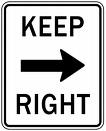From a historical perspective, America is still a young nation, yet we seem to have undergone an accelerated cycle of ascendency and decline. After rising from a handful of colonies to the richest and most powerful nation in the world, our country is now declining at an alarming rate under a collapsing economy and a culture of complacency and entitlement.
The rapid rise of this nation was due to a fortunate combination of abundant natural resources, a free market that provided opportunity for everybody, and a strong work ethic that was deeply ingrained in our culture. People immigrated here from all over the world seeking opportunities that uniquely existed here. – They didn’t come because they wanted a handout. There were no handouts. — They just wanted an opportunity to work hard, and to be compensated at fair market value for their industriousness and ingenuity. They were willing to struggle and sacrifice to carve out a better life for themselves and their descendents. That’s why they came to America.
That model worked exceptionally well. America prospered and flourished. We were the first nation ever to have a true middle class. – But then something changed, and we underwent a sudden phase shift from hard-earned ascendency into meteoric decline. What happened to our nation?
I see a direct correlation between the decay of the proud work ethic, upon which this nation was built, and the rise of the credit/entitlement culture. What does credit have to do with a sense of entitlement, or with the loss of our cultural work ethic? Let’s take a look at the moral hazard engendered by easy credit.
When somebody wanted to buy something, but couldn’t afford to pay for it in cash, they used to have to save up for it. Department stores had layaway plans, where a person could put an item on hold while they paid it off. They’d pay a little each month until it was paid in full and, when they made that final payment, they’d go to the store and proudly bring their new possession home. It was very clear how long it took to earn the money it cost to purchase a particular item, and people had to make tradeoffs based on what they could afford.
Then came credit cards. The idea was that you still pay a little every month, but you don’t have to wait until it’s actually paid off to take possession of it. Whatever you want, you can have it now, whether you can afford it or not. And, as long as you make a minimum payment each month, you can keep charging and charging and charging, with no immediate consequences. There’s no longer a clear relationship between what you buy and how long it takes to earn the money to pay for it. And, when you max out one credit card, you get another (usually with a higher interest rate).
According to a recent Wall Street Journal article, the ratio of household debt to income for the average American family is 122% . That means the average American family spends 22% more than they earn. Clearly, that is not sustainable for even one household – let alone an entire nation. Most Americans are maintaining a much higher standard of living than they can actually afford. And now that the credit market is tightening up, they will no longer be able to sustain it. Inevitably, most of these people will see themselves as victims because they feel entitled to the standard of living to which they’ve become accustomed, — even though they’ve spent most of their lives living way beyond their means.
Some blame the credit crisis on the lenders. That conveniently absolves individuals of taking responsibility for their own actions, and further promotes the entitlement mentality that got them into this untenable situation. To reward the “victims” by bailing them out at other people’s expense further compounds the moral hazard.
A recent publication by the Bureau of Labor Statistics says that almost 43% of Americans don’t even have a retirement savings account. Among those who do, the median amount of their retirement savings is $2,000. That won’t go very far these days.
It used to be part of the culture that everybody set aside a portion of their income, throughout their earning years, to save for their retirement. People routinely sacrificed conveniences and luxuries to build up a “nest egg” so they wouldn’t have to live out the remainder of their lives scraping by at a bare subsistence level. Regrettably, it seems that is no longer part of our culture. Since the Social Security program was introduced during the Great Depression, the subsequent generation of baby boomers never felt it necessary to save for their own retirement. After all, Daddy Government had relieved them of that responsibility by deducting money from every paycheck and setting it aside for them. So why should they bother to save?
Social Security is now officially projected to run out of money by 2037, and it could be a whole lot sooner. So what will happen to all these people who spent their entire lives living beyond their means, who have no savings and no retirement income? They will face a devastating reality from which they’ve been shielded all their lives. They are not entitled to the standard of living to which they’ve become accustomed. Daddy Government is broke, and cannot come to their rescue.
At least they’ll have fond memories of all the lattes, junk food, trinkets, and fads on which they squandered their money instead of saving for their retirement.
But how were they supposed to know? Everybody else was doing the same thing! – And that’s exactly why our once-great nation has fallen into bankruptcy, financially and morally. Because everybody was doing the same stupid thing, and it never occurred to them that they’d someday have to take responsibility for themselves.







